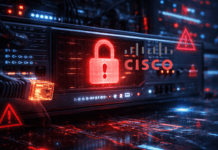In an era where remote and hybrid work have become the norm, device security has emerged as a crucial concern, especially in family households. A recent Cisco study has revealed alarming trends in the UAE, where 40% of parents allow their children unsupervised access to devices also used for work, often including sensitive business data. With only 24% of these devices secured by multi-factor authentication (MFA), cybersecurity professionals are voicing serious concerns over the potential risks of unsupervised device sharing within families. This situation highlights the need for a robust approach to security measures that can account for the complexities of shared family devices.
The Risks of Unsupervised Device Sharing:
Children, while tech-savvy, lack awareness of the potential consequences of their actions online, making them vulnerable to malware, phishing, and accidental access to sensitive data. When a child uses a parent’s work device unsupervised, the risks include potential exposure to dangerous websites, downloading unverified apps, or inadvertently accessing confidential work files. These actions not only jeopardize the security of sensitive information but also introduce potential vulnerabilities that hackers could exploit.
Why Cybersecurity Professionals Are Concerned:
With 91% of working parents sharing a work device with a child in the UAE over the past six months, IT teams now face added complexities in maintaining secure environments. This blending of personal and professional use highlights a significant security gap, as work-from-home devices often lack the layered protection of in-office setups. As Fady Younes, Cisco’s Managing Director for Cybersecurity in the Middle East, emphasized, a balance between strong security measures and an understanding of home dynamics is essential to effectively safeguard sensitive data in shared-device households.
10 Recommendations for Mitigating Security Risks with Shared Devices:
- Implement Multi-Factor Authentication (MFA): MFA provides an additional layer of security by requiring users to verify their identity through multiple forms, ensuring that unauthorized users, such as children, cannot access sensitive data.
- Create Guest Accounts for Family Members: Setting up guest accounts with restricted access allows children to use the device without compromising work-related applications and files. These accounts help prevent accidental access to sensitive information.
- Use Strong Passwords and Avoid Reuse: Secure devices with strong, unique passwords and avoid reusing passwords across multiple devices or accounts. This reduces the chances of unauthorized access through weak or duplicated passwords.
- Educate Family Members on Cybersecurity Basics: Ensure children and other family members understand the importance of cybersecurity. Teaching them about safe online behavior can help prevent unintentional security breaches.
- Implement Parental Controls on Shared Devices: Use parental control settings to restrict access to specific websites, applications, and functions, further reducing the likelihood of accidental security incidents.
- Limit Access to Sensitive Files: Designate a secure folder for sensitive work files that requires a password or fingerprint to open, limiting access to essential personnel only.
- Use Zero Trust Network Access (ZTNA): Employ a zero-trust approach, where access is verified at every point, ensuring that only authorized users access sensitive work applications and data, even within a home network.
- Regularly Back-Up Data: In case of accidental deletion or device failure, ensure that important data is regularly backed up and can be easily restored.
- Secure the Home Network: Implement strong security protocols on the home Wi-Fi network, such as WPA3 encryption, and regularly update the router’s firmware to protect against outside threats.
- Engage in Regular Security Audits: Periodically check the device for unauthorized applications, files, or changes in settings to ensure that no security measures have been compromised over time.
Conclusion:
The rise of unsupervised device sharing in family households presents a real and growing challenge for security teams, who must account for this complex, often unpredictable environment. As more children gain access to work devices, cybersecurity professionals must advocate for strong security protocols tailored to home use. By implementing these practical strategies, organizations can enhance security for remote workers and mitigate risks associated with unsupervised access. Source: Zawya
Want to stay on top of cybersecurity news? Follow us on Facebook, X (Twitter), Instagram, and LinkedIn for the latest threats, insights, and updates!





